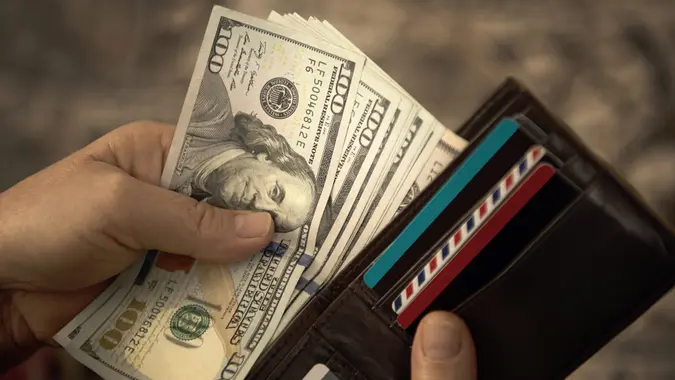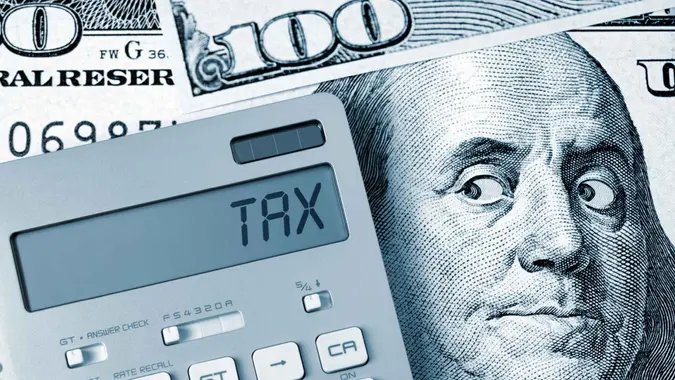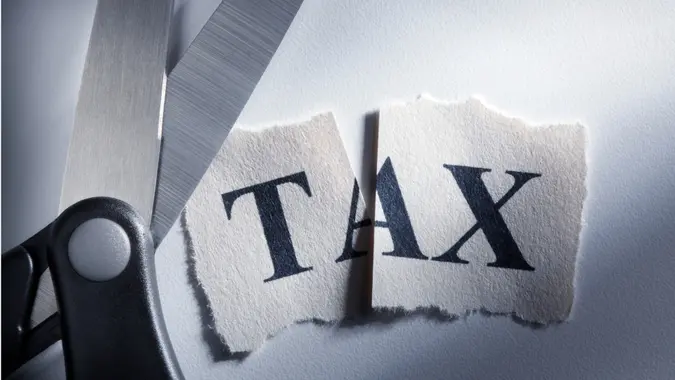Purported ‘Self-Employment Tax Credit’ Is False — Here’s What Taxpayers Need To Know

Commitment to Our Readers
GOBankingRates' editorial team is committed to bringing you unbiased reviews and information. We use data-driven methodologies to evaluate financial products and services - our reviews and ratings are not influenced by advertisers. You can read more about our editorial guidelines and our products and services review methodology.

20 Years
Helping You Live Richer

Reviewed
by Experts

Trusted by
Millions of Readers
In the world of misinformation, exaggerations and scams, it’s easy for rumors to spread like wildfire, particularly when it comes to your finances. For instance, word of a so-called “self-employment tax credit” (SETC) has been making the rounds on social media since the summer. However, it’s important to distinguish what it is actually referring to versus what it may imply at first glance.
You may have noticed posts on social media encouraging you to file a claim for a self-employment tax credit that will pay out in a giant refund. It’s being described as “a way to secure payments for the COVID-pandemic period,” as reported by KLR, with some taxpayers convinced they could earn up to $32,000 in tax refund payments. Is this truly the case?
What ‘Self-Employment Tax Credit’ Is Really Referring To
Per KLR in reference to an official IRS warning, there actually is a “very limited and technical credit” that is known as Credits for Sick Leave and Family Leave. This credit can be claimed by self-employed taxpayers for sick and family leave, but only for limited COVID-19 situations from 2020 to 2021 — it isn’t even available for 2023 returns. You may be eligible for this credit if you were unable to work because you were “subject to or caring for an individual subject to a quarantine or isolation order in 2020/2021,” or if you were unable to work due to a school closure or the lack of a child care provider because of enforced COVID-19 precautions.
It’s important to remain vigilant against exaggerated or outright made-up tax credit rumors. Submitting false claims to the IRS will only delay your legitimate refunds, keeping you from getting your money. In addition to this fake self-employment tax credit, there are also (completely untrue) rumors being spread of a “fuel tax credit and household employment taxes” — all the more reason for you to stay knowledgeable and always double check with the IRS website before submitting any potential tax credits.
 Written by
Written by  Edited by
Edited by 


























